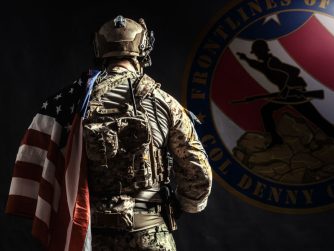Last week the chief of the Guantanamo war court ignored President Obama’s request to freeze the military commissions trying war-on-terror captives; he said he would hold a hearing next month for an alleged USS Cole bomber in a capital terror case.br /This means that only withdrawal/dismissal of the charges could stop Abd el Rahim al-Nashiri’s Feb. 9 arraignment. A Pentagon source said the withdrawal/dismissal could happen within days.br /Army judge Col. James Pohl wrote a decision that the war court structure set up by Congress in 2006 left him no choice but to move ahead with this case. The Saudi Arabian is accused of orchestrating the October 2000 al-Qaida suicide bombing off Yemen that killed 17 American sailors, a crime for which the Pentagon war crimes prosecutor seeks military execution.br /”The Commission is bound by the law as it currently exists not as it may change in the future,” wrote Pohl.br /The Pentagon announced the charges against al-Nashiri in June. Gen. Thomas Hartmann, then legal advisor at the process, said the war court would ensure that the man the CIA waterboarded receives a fair trial consistent with American standards of justice. Ooooh, waterboarding. Some people call this torture, but there is no legal definition of torture. I don’t call it torture. It doesn’t compare to what the terrorists do to people they capture.br /I do favor doing whatever is necessary to get information that may protect American lives. If that means making a captured terrorist uncomfortable or in fear of his life for a while, I have no problems. If your family was at risk of a terrorist attack and the government could find out a way to stop it, would approve of the technique? Though, for the record, the US does very, very little of this—because there are better techniques.br /And Gitmo is a great place to do this interrogation. I oppose the idea of moving the 245 war-on-terror captives out of Guantanamo. Where did the idea that foreign-born detainees captured abroad and who have never been on US soil deserve the same due process as Americans?br /Why should we make policy decisions based on human rights and legal advocacy group’s opinions? Shouldn’t we consider what is best for the American people? We sure don’t want to jeopardize those who are fighting the war on terror – or to negatively impact the families who have already suffered losses as a result of the war.
More from this show
The current prime minister of Iraq mentioned joining the Taliban. Our president is shocked by such a statement. Am I the only one who...
On this Easter Sunday I was thinking about the brave men and women who have fought and died to protect our right to freely practice our...



